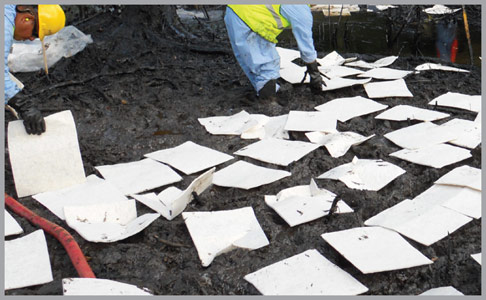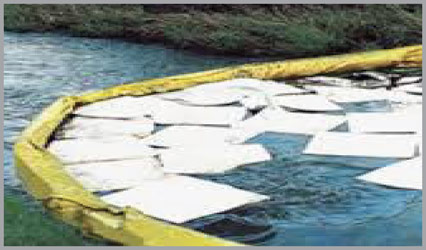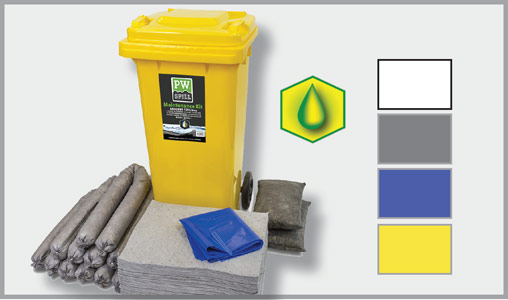
BS7959 is the British Standard, which contains 3 parts for spill control products: absorbency, oil only sorbents, and colour coding for spill.
BS 7959-1:2004:
This tests the absorbency rate for a variety of different sorbents i.e. pads, socks, pillows etc. using diesel fuel, hydraulic oil, motor oil, xylene, deionized water. The absorbency is measured in litres of liquid absorbed per Kg. After 30 seconds if the sorbent has retained the liquid it passes the standard.

BS 7959-2:2000:
This test is performed in the same manner as part 1, however it only measures the absorbency for oil only sorbents.

BS 7959-3:2007:
All sorbents are categorised using different colours according to their industrial application: Oil Only sorbents are white or blue and are used with oils, hydrocarbons and liquids which do not mix with or absorb water. Maintenance sorbents are grey and are used with most liquids that do not degrade the sorbent. Chemical sorbents are yellow and are used with most aggressive chemical liquids.
Introducing the Portwest Maintenance Pad - Grey: A vital tool designed for efficient and quick absorption. Whether you're managing machine spills or requiring a reliable solution for any maintenance-related absorption tasks, these pads offer unmatched performance with their open-edged design for rapid wicking. Combined with their robust spunbound coverstocks, lint sticking to machine parts becomes a concern of the past, ensuring the integrity of the pad even when thoroughly saturated.
Key Features:
The Portwest Maintenance Pad not only delivers in terms of functionality but also adheres to the stringent BS 7959-1 and BS 7959-3 standards. When it comes to maintenance tasks, these grey pads stand out as the paragon of efficiency and reliability.
Specifications are subject to change - See Terms & Conditions for more info
Portwest has been independently rated by Ecovadis for its environmental, social, and ethical performance and achieved a silver rating, meaning they are in the top 25% of globally rated companies.
The pillars taken into consideration include the environment, labour practices and human rights, ethics, and sustainable procurement.